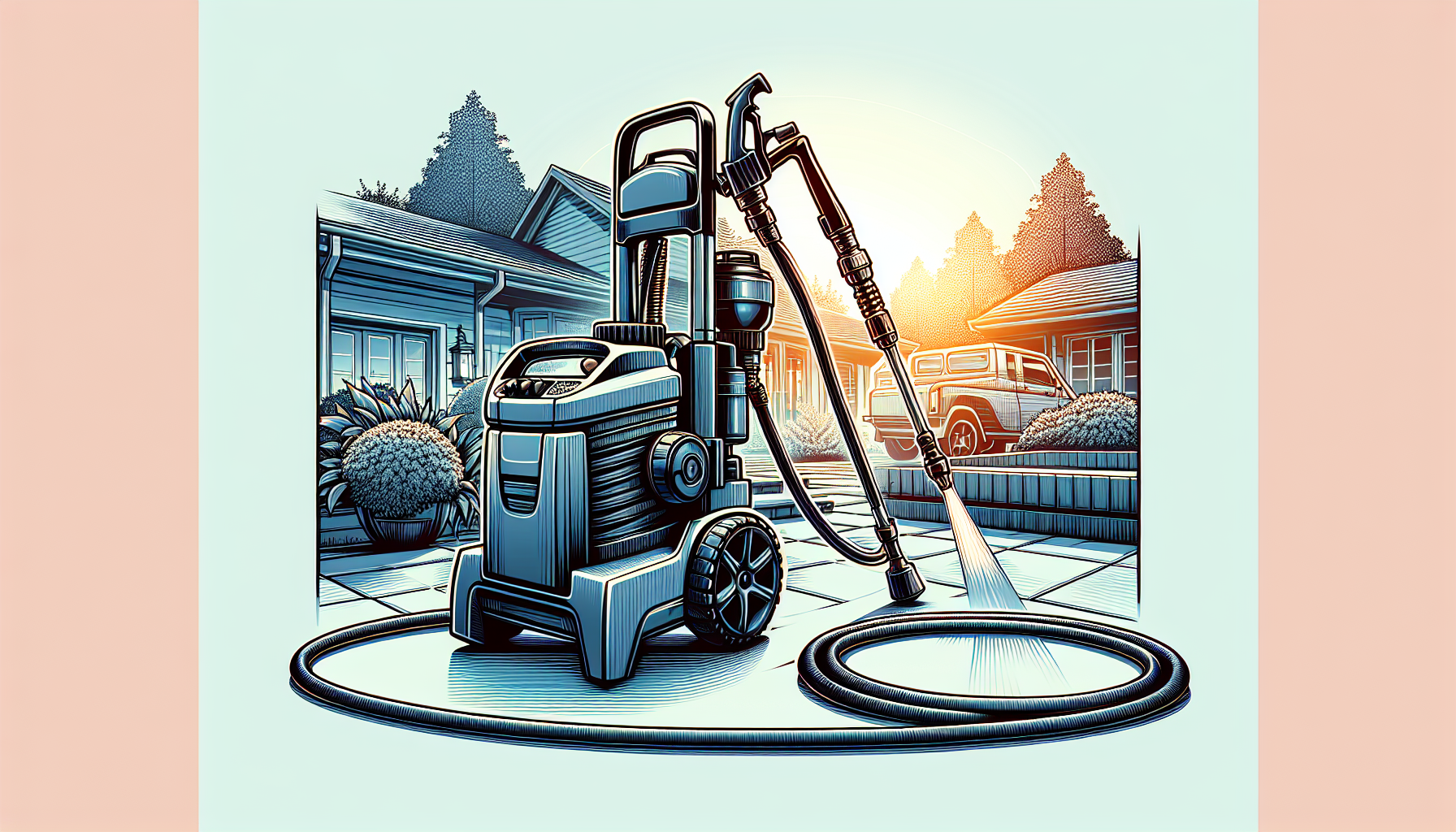How Can I Avoid ISF Penalties For High Pressure Cleaners
Have you ever faced the frustration of penalties when dealing with import compliance, especially for high-pressure cleaners? If so, you’re not alone. Navigating the complexities of Importer Security Filing (ISF) requirements can be tricky, but with the right knowledge and preparation, you can effectively avoid penalties.

Understanding ISF Requirements
ISF, commonly referred to as “10 + 2,” is an essential part of the United States Customs and Border Protection (CBP) regulations. It requires importers to provide specific information about their shipments to prevent potential risks and enhance security.
What Information is Required?
To comply with ISF requirements, you need to provide certain data elements related to your high-pressure cleaners. This includes:
- Importer of Record Number: This number represents the entity responsible for the goods.
- Consignee Number: This is often the customer or the person receiving the shipment.
- Description of Goods: A detailed description of the high-pressure cleaners being imported.
- Harmonized Tariff Schedule (HTS) Number: This categorizes the product for tariff purposes.
- Manufacturer Name and Address: You must know where your items are produced.
- Seller Name and Address: Keep this information at hand as it relates to the transaction.
- Country of Origin: Indicate where the high-pressure cleaners are made.
- Ship to Party Name and Address: Useful if the goods are not going directly to the consignee.
- Bill of Lading Number: This is the primary shipping document.
- Container Status Messages: To provide additional information, you might need details on container status.
Why is ISF Important?
Adhering to ISF requirements is crucial for several reasons. Firstly, it helps streamline custom processes and can cool down potential delays in the release of your shipments. Secondly, failing to comply can lead to significant penalties, which can drastically affect your import costs.
Who is Responsible for ISF Filing?
As an importer, you hold the responsibility for ISF filing. It’s vital to ensure that all relevant information is accurately provided to avoid unnecessary complications. This responsibility also extends to your customs broker if you choose to work with one.
Common ISF Penalties for High-Pressure Cleaners
While you might think penalties are just a part of business, they can significantly impact your bottom line. It’s essential to be aware of the various consequences that arise from non-compliance with ISF regulations.
Financial Penalties
One of the immediate impacts you could face is a financial penalty. Customs can impose fines ranging from $5,000 up to $10,000 for ISF violations. Keeping this in mind should motivate you to remain diligent in your filing process.
Shipment Delays
Imagine waiting for your high-pressure cleaners to arrive, only to find out there’s a hold due to missing or incorrect ISF data. Shipment delays can affect your inventory management, customer satisfaction, and ultimately, your revenues.
Increased Scrutiny
Repeated ISF violations can lead to increased scrutiny from customs. If they place you on a watch list or conduct audits of your imports, it can become far more complicated to move your products through customs smoothly.

Steps to Avoid ISF Penalties
Being proactive is your best defense against ISF penalties. Here are several steps you can take to keep your import process on the right track.
Develop an ISF Filing Process
Creating a methodical process for ISF filing can aid you in ensuring that all necessary information is collected and submitted accurately. Here’s a simple checklist you can follow:
| Step | Action Required |
|---|---|
| 1. Prepare Documentation | Gather all necessary documents and data points. |
| 2. Verify Information | Double-check for accuracy of each entry. |
| 3. File Promptly | Ensure filings are completed at least 24 hours prior to loading. |
| 4. Monitor Compliance | Review compliance regularly to catch any issues early. |
Train Your Team
If you’re working with a team, make sure everyone understands the importance of ISF compliance. Training sessions can help ensure that everyone is on the same page regarding what’s required and how to manage filings.
Use Technology Solutions
Consider implementing a software system that specializes in customs compliance. Such programs can help automate ISF filings, reducing human error and ensuring you meet all deadlines.
Communicate with Your Suppliers
Establish robust communication lines with your suppliers and manufacturers. Provide them clear guidelines on what information you need regarding the high-pressure cleaners, and make sure they understand the implications of ISF compliance.
Hire a Customs Broker
If managing ISF filings seems overwhelming, you might consider hiring a customs broker. These professionals specialize in navigating customs regulations and can lend their expertise to ease the process.
The Role of Accurate Product Descriptions
Having accurate and detailed descriptions of your high-pressure cleaners isn’t just good practice; it’s essential for compliance. The more precise your descriptions, the less chance there is for confusion during customs review.
What Makes a Good Product Description?
A good product description should include specifics like:
- Brand Name: Clearly state the brand of the high-pressure cleaner.
- Model Numbers: Important for identifying the exact product.
- Specifications: Include technical specifications that outline the capabilities of the equipment.
- Intended Use: Describe what the high-pressure cleaners are typically used for, whether it be industrial, residential, or commercial applications.
Avoiding Generalizations
Steer clear of vague terms like “cleaning machine.” Instead, opt for clear language that accurately portrays the item. This clarity helps customs officials do their jobs and reduces the chances of your shipment being flagged for further inspection.
Keeping Up With Regulatory Changes
Regulatory requirements can change, so it’s crucial to stay updated on any new rules regarding ISF filing for high-pressure cleaners.
Set a Review Schedule
Consider setting a quarterly review of your compliance processes so your practices reflect the latest regulations. Choose a go-to source for updates, whether it’s the CBP website or a regulatory newsletter.
Attend Industry Events
Participating in trade shows and industry events can also keep you informed. You might encounter government officials discussing the latest rules or hear from specialists about emerging trends and compliance updates.
Benefits of Compliance
While avoiding penalties is a key driving force behind ISF compliance, the benefits extend beyond just financial avoidance.
Streamlined Operations
Having an efficient ISF filing process leads to smoother customs operations, which means faster delivery of your high-pressure cleaners to your customers or businesses.
Enhanced Reputation
Demonstrating compliance builds your reputation with suppliers, buyers, and regulatory authorities. It shows you are a responsible and reliable importer, which can lead to stronger business relationships.
Better Business Decisions
Compliance data can provide insights into your business operations. Analyzing your ISF filings can help you understand shipping trends and costs, aiding in future planning and negotiations.
Conclusion
Avoiding ISF penalties for high-pressure cleaners is fully within your reach. By understanding requirements, establishing thorough processes, and remaining proactive, you can significantly minimize the risk of incurring penalties.
Incorporate these strategies into your operations to create a compliant and efficient import process. Remember, staying informed and prepared today can save you time, money, and headaches down the road.

